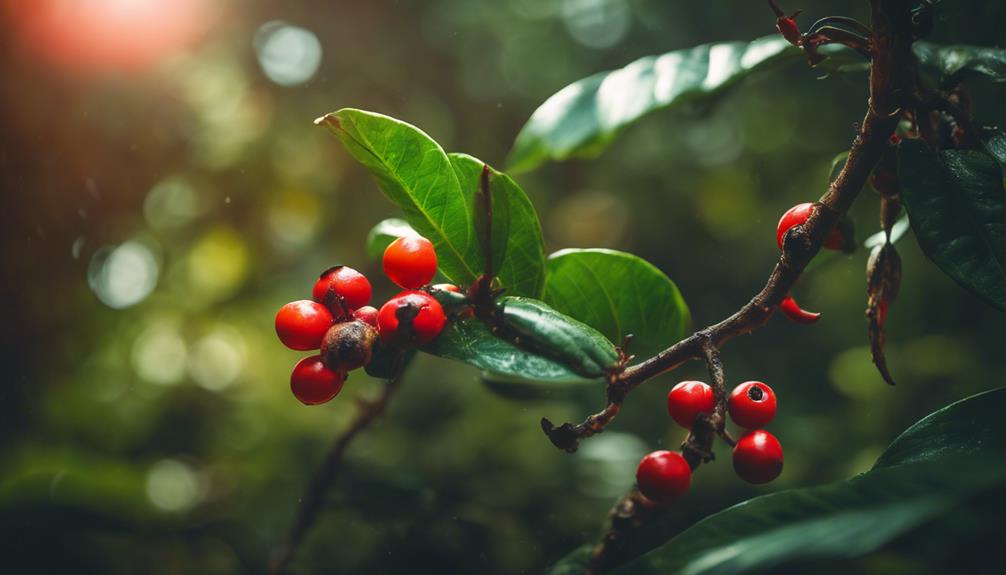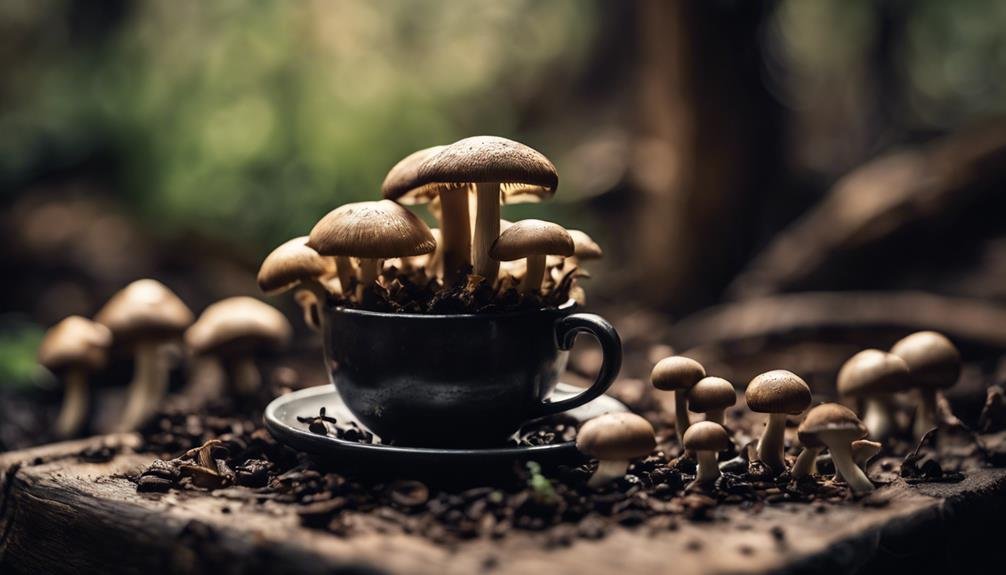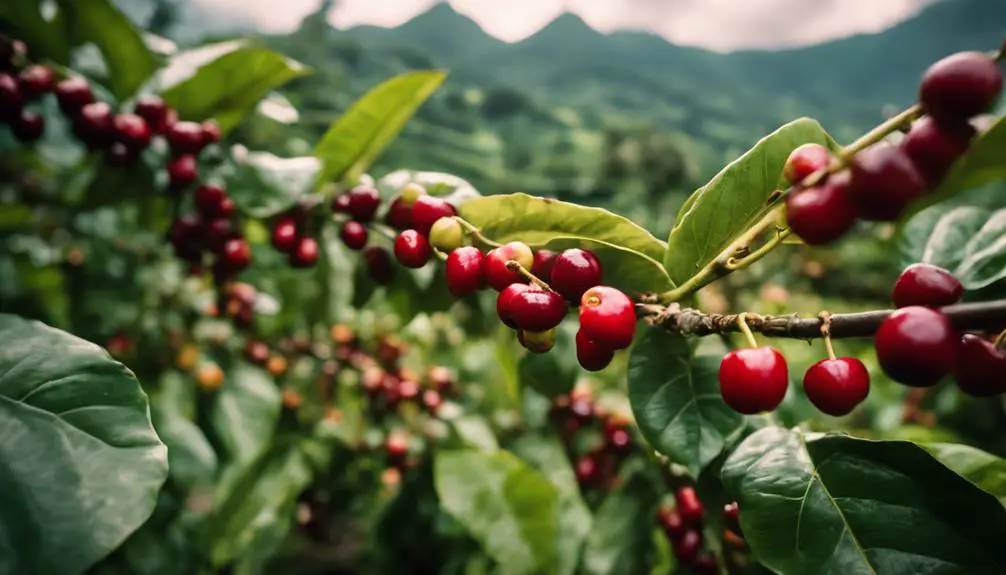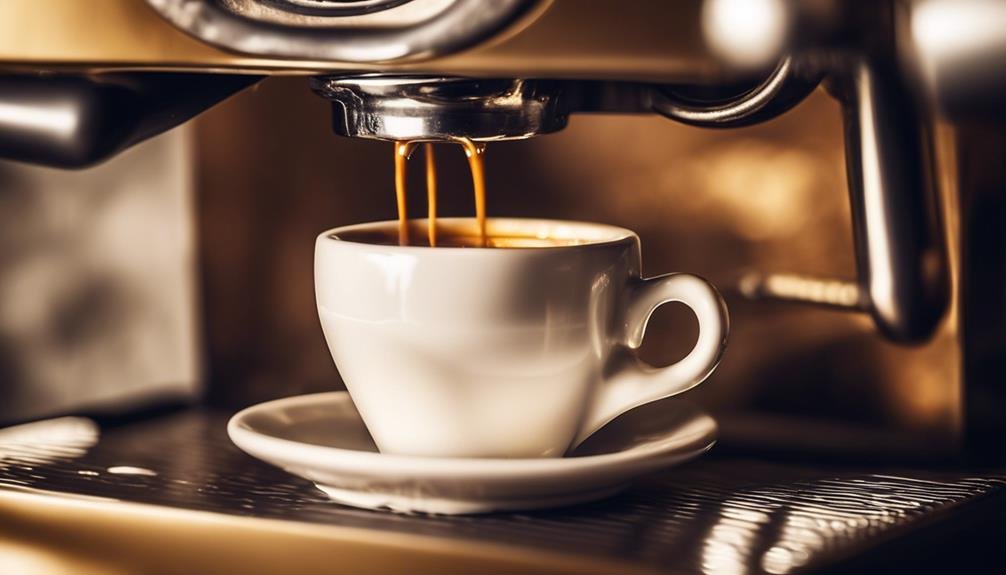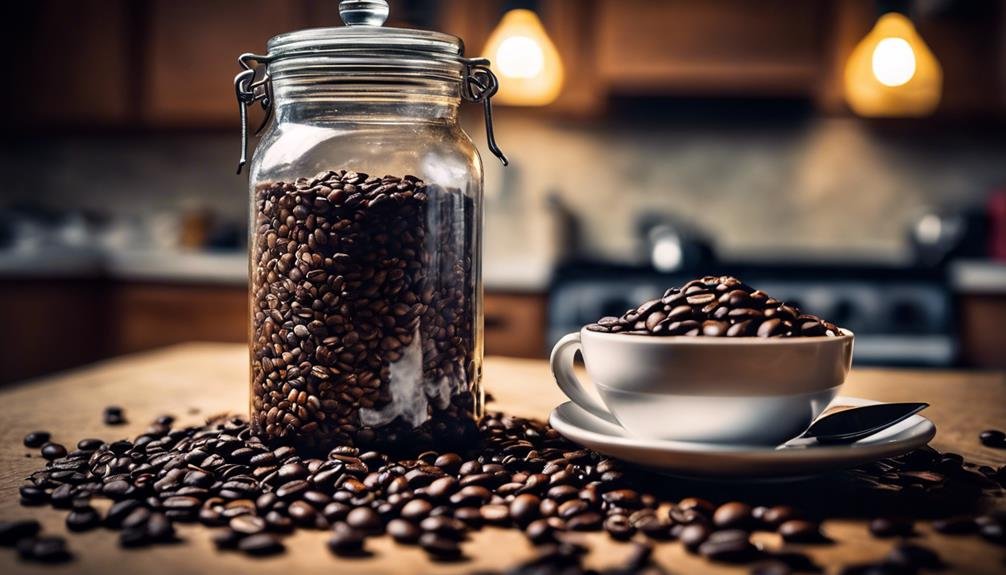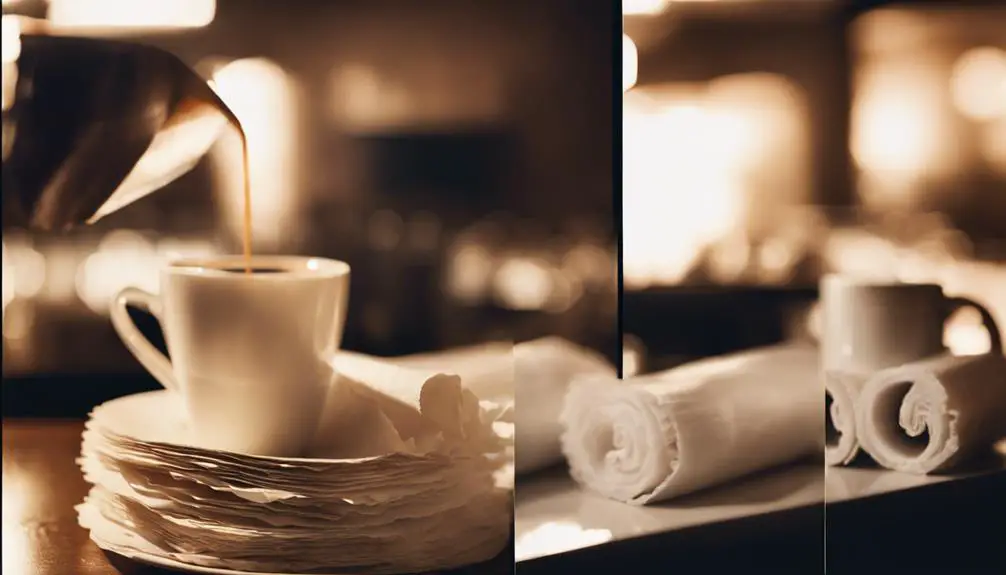Are you a coffee lover who is always looking for ways to make your morning cup of joe even better? One debate that has been going on for years is whether it is healthier to grind your own coffee beans or buy pre-ground coffee. While both options have their pros and cons, there are some potential health benefits to grinding your own coffee beans that you may want to consider.
When coffee beans are roasted and ground on an industrial scale, they lose some of their natural oils and antioxidants. These essential compounds are what give coffee its unique flavor and aroma, as well as its potential health benefits. However, when beans are ground at home, those oils and antioxidants are better preserved, resulting in a fresher, more flavorful cup of coffee.
Advantages of Grinding Coffee at Home
Grinding coffee at home has many advantages over buying pre-ground coffee. Whether you are an avid coffee drinker or just looking to improve your morning cup, grinding your own beans can take your coffee to the next level.
| Advantages | Description |
|---|---|
| Freshness | When you grind coffee at home, you can enjoy the freshness of just-ground beans. Pre-ground coffee starts to lose its freshness as soon as it is exposed to air, but whole beans retain their flavor and aroma longer. |
| Flavor and Aroma | Grinding your own beans allows you to customize the grind size and achieve the perfect balance between flavor and aroma. You can experiment with different brewing methods, such as French press or pour-over, to bring out the unique qualities of each type of bean. |
| Cost-Effectiveness | While investing in a coffee grinder may seem like an upfront expense, it can save you money in the long run. Buying whole beans in bulk and grinding them at home is often more affordable than buying pre-ground coffee, especially if you opt for high-quality, specialty beans. |
Not only is grinding your own coffee cost-effective, it’s also convenient. You can grind beans in small batches as you need them, ensuring that you always have fresh coffee on hand. Plus, grinding your own beans allows you to customize your coffee to your specific tastes, from a bold espresso to a mellow, light roast.
Another advantage of grinding coffee at home is the environmental benefits. When you buy whole beans and use a grinder, you eliminate the need for wasteful packaging that often comes with pre-ground coffee. You can also choose to buy beans from local roasters or fair-trade sources, supporting sustainable farming practices and reducing your carbon footprint.
Advantages of Grinding Coffee at Home
- Enjoy the freshness of just-ground beans
- Customize the grind size for optimal flavor and aroma
- Save money in the long run by buying whole beans in bulk
- Have fresh coffee on hand whenever you need it
- Choose beans from local or fair-trade sources for sustainable farming practices
The Science of Coffee Grinding
Grinding coffee at home not only provides a fresher and tastier brew, but it may also offer some health advantages. The act of grinding can release volatile compounds that enhance the coffee’s aroma and flavor, as well as preserve antioxidants that are often lost during industrial roasting and grinding processes.
One study found that freshly ground coffee had higher levels of chlorogenic acid, an antioxidant that may have anti-inflammatory and anti-cancer properties. Another study noted that coffee grinders produced a more uniform particle size distribution, which can result in a more evenly extracted cup of coffee and avoid over-extraction or under-extraction.
When it comes to choosing a coffee grinder, burr grinders are often preferred over blade grinders. Burr grinders provide a more consistent grind, which can lead to a more balanced and flavorful cup of coffee. They also generate less heat, which can help to preserve the natural oils and nutrients in the coffee beans.
| Grinder Type | Pros | Cons |
|---|---|---|
| Burr Grinder | Consistent grind, preserves natural oils and nutrients, better flavor | More expensive, slower grind |
| Blade Grinder | Less expensive, faster grind | Inconsistent grind, generates heat which can alter flavor and aroma |
Regardless of which type of grinder you choose, it’s important to clean it regularly to avoid buildup of coffee oils and prevent contamination. A simple way to clean a grinder is to grind some uncooked rice, which can absorb oils and other particles.
To achieve the optimal grind size and consistency for your preferred brewing method, consult the manufacturer’s instructions or experiment with different settings. For example, coarser grinds are typically used for French press, while finer grinds are ideal for espresso. By adjusting the grind, you can customize your coffee to your liking and maximize its flavor and health benefits.
The Risks of Pre-Ground Coffee
While pre-ground coffee may seem convenient, it can come with a host of risks and downsides that may affect your health and the quality of your coffee. Here are some of the most significant drawbacks of pre-ground coffee:
| Disadvantages of Pre-Ground Coffee | Impact on Health and Quality |
|---|---|
| Lack of freshness | Loss of essential oils and nutrients, stale flavor and aroma |
| Risk of contamination | Potential exposure to mold, bacteria, and toxins from the production, transportation, and storage process |
| Oxidation | Exposure to air and sunlight can accelerate the breakdown of coffee compounds and lead to rancid and sour flavors |
| Chemical exposure | Pre-ground coffee may contain residual chemicals from the manufacturing process, such as pesticides, herbicides, and artificial flavors or colors |
Moreover, pre-ground coffee is often ground too fine or too coarse for optimal extraction, which can lead to over-extraction or under-extraction, resulting in bitter or weak coffee.
Therefore, if you want to enjoy the full benefits of coffee and minimize your exposure to potential health hazards, it is advisable to grind your own coffee beans at home.
How to Choose the Right Coffee Beans
Choosing the right coffee beans is essential to achieving a delicious and satisfying cup of coffee. Here are some factors to consider:
- Origin: Coffee beans can come from various regions around the world, each with its own unique flavor profile. Consider trying beans from different countries to find your favorite.
- Varietal: Just like wine grapes, coffee beans have different varietals that impact their flavor. Common varietals include arabica and robusta.
- Roast level: Beans can be roasted to different levels, which affects their taste and aroma. Light roasts have a milder flavor, while dark roasts are more robust.
- Freshness: Look for beans that have been recently roasted and have a strong, pleasant aroma. Avoid beans that have a dull smell or a greasy feel.
When selecting coffee beans, it’s also important to consider how you plan to brew your coffee. Different brewing methods require different grind sizes, so make sure to choose beans that are suitable for your preferred brewing method.
You can buy coffee beans from a variety of sources, including local coffee shops, roasters, and online retailers. Look for companies that prioritize fair trade and ethical sourcing practices.
The Science of Coffee Grinding
When it comes to coffee, the grinding process plays a crucial role in the final product’s flavor, aroma, and health benefits. In this section, we will explore the science behind coffee grinding and its potential health advantages.
The Impact of Grinding on Flavor and Aroma
The grind size and consistency affect how quickly water extracts flavor from the coffee beans. A finer grind accelerates extraction, whereas a coarser grind slows it down. As a rule of thumb, a longer extraction time produces a stronger and more bitter brew, while a shorter extraction time yields a milder and more acidic cup.
Therefore, it’s essential to adjust the grind size according to the brewing method you’re using. For instance, a French press requires a coarse grind to avoid sediment, while espresso demands a fine grind to maximize the crema and body.
The Preservation of Antioxidants
One of the most significant health benefits of grinding coffee at home is the preservation of antioxidants. Antioxidants are natural compounds found in coffee that help fight inflammation and oxidative stress in the body. However, industrial roasting and packaging can reduce the antioxidant levels by up to 50%.
Thus, grinding your own coffee beans can help retain more of these healthful compounds. The reason is that freshly ground coffee offers a larger surface area for the extraction of antioxidants, both during brewing and digestion.
The Enhancement of Aroma and Taste
Another advantage of grinding coffee at home is the enhancement of its aroma and taste. Coffee contains hundreds of volatile compounds that contribute to its unique flavor profile. However, these compounds are highly sensitive to heat, oxygen, and moisture, which can degrade their quality over time.
Therefore, freshly ground coffee preserves more of its natural oils, aromas, and flavors, resulting in a more complex and nuanced cup. In contrast, pre-ground coffee can taste flat, stale, or even rancid due to prolonged exposure to air and light.
The Health Advantages of Using a Coffee Grinder
Grinding coffee at home offers several health advantages that justify the investment in a high-quality coffee grinder. For example, a manual grinder can provide a low-impact aerobic exercise that improves hand-eye coordination and fine motor skills. On the other hand, an electric grinder can save time and effort, especially for frequent coffee drinkers.
Moreover, using a coffee grinder allows you to control the quality and freshness of your coffee beans. You can choose organic, fair-trade, or single-origin beans that align with your values and preferences. You can also adjust the grind size and consistency to fine-tune the coffee’s taste and strength.
Choosing the Right Grinder for Your Needs
When it comes to coffee grinders, there are three main types: blade grinders, burr grinders, and manual grinders. Blade grinders are the most common and affordable type, but they tend to produce an inconsistent grind and generate heat that can alter the coffee’s flavor. Burr grinders, on the other hand, provide a more precise and uniform grind by crushing the beans between two revolving abrasive surfaces. Manual grinders are suitable for low-volume brewing and outdoor activities, but they require more effort and patience than electric grinders.
Therefore, when choosing a coffee grinder, consider your budget, brewing method, and personal preferences. A burr grinder is a popular choice among coffee aficionados, but it can be expensive, bulky, and noisy. A blade grinder can work well for drip coffee or French press, but it may not be suitable for espresso or Turkish coffee. A manual grinder can offer portability and simplicity, but it may not be practical for a large household or office.
The Benefits of Freshly Ground Coffee
While there are many factors that contribute to a great cup of coffee, one of the most important is freshness. When coffee beans are ground, they begin to lose flavor and aroma rapidly due to exposure to air and moisture. This is why freshly ground coffee is widely regarded as superior to pre-ground coffee, which may have been sitting on store shelves for weeks or even months.
But is fresh ground coffee healthier? Some studies suggest that freshly ground coffee may contain higher levels of antioxidants, which are believed to have a range of health benefits, including protecting against inflammation, oxidative stress, and chronic diseases like cancer and heart disease.
Studies have also shown that freshly ground coffee may have a higher level of volatile compounds, which give coffee its characteristic aroma and flavor. This is because these compounds start to break down as soon as the beans are ground, particularly if they are exposed to heat or moisture. By grinding your own coffee beans, you can ensure that these compounds are preserved and released when you brew your coffee.
Another benefit of freshly ground coffee is that it allows for greater control over the brewing process. Depending on the brewing method you use, you may need a coarser or finer grind size in order to achieve the desired flavor and strength. By grinding your own coffee, you can experiment with different grind sizes and adjust the flavor to your personal taste preferences.
FAQ – Frequently Asked Questions
Grinding coffee at home can seem daunting for those who are new to the concept. Here are some common questions and answers to help you get started:
How do I clean my coffee grinder?
You should clean your coffee grinder regularly to prevent buildup of oils and residue that can affect the flavor of your coffee. The easiest way to clean a grinder is to use a small brush or cloth to wipe away any excess grounds and then use a dry material to clean the inside of the machine. If you want, you can also use a natural cleaner like white vinegar or baking soda mixed with water to clean the grinding chamber and blade.
How should I store my coffee beans?
Storing your coffee beans correctly can help to preserve their flavor and aroma. Ideally, beans should be stored in a cool, dry, and dark place in an airtight container. Avoid storing coffee in the freezer or refrigerator, as this can lead to moisture and flavor loss. Only grind the amount of beans you need for each brewing session, to ensure maximum freshness and flavor.
How do I find the right grind size for my brewing method?
The right grind size will depend on the brewing method you use. For example, a coarser grind is typically used for French press, while a finer grind is needed for espresso. You can experiment with different grind settings to find the one that produces the best flavor and aroma for your brewing method. If you’re not sure which setting to use, start with a medium grind and adjust up or down until you get the desired taste.
How do I avoid over-extraction or under-extraction?
Over-extraction is when coffee is brewed for too long or with water that’s too hot, resulting in a bitter taste. Under-extraction is when coffee is brewed for too short or with water that’s not hot enough, leading to a weak or sour taste. To avoid these issues, use a timer to ensure you’re brewing for the right amount of time, use the correct water temperature for your brewing method, and adjust the grind size as needed to achieve the ideal extraction.
Can I grind flavored coffee beans?
Flavored coffee beans can be ground, but keep in mind that the flavoring can affect the taste of your grinder and your subsequent cups of coffee. It’s best to clean your grinder thoroughly between grinding flavored and unflavored beans, to avoid any unwanted flavor mixing. Alternatively, you could use a separate grinder or manual grinder strictly for flavored beans.






